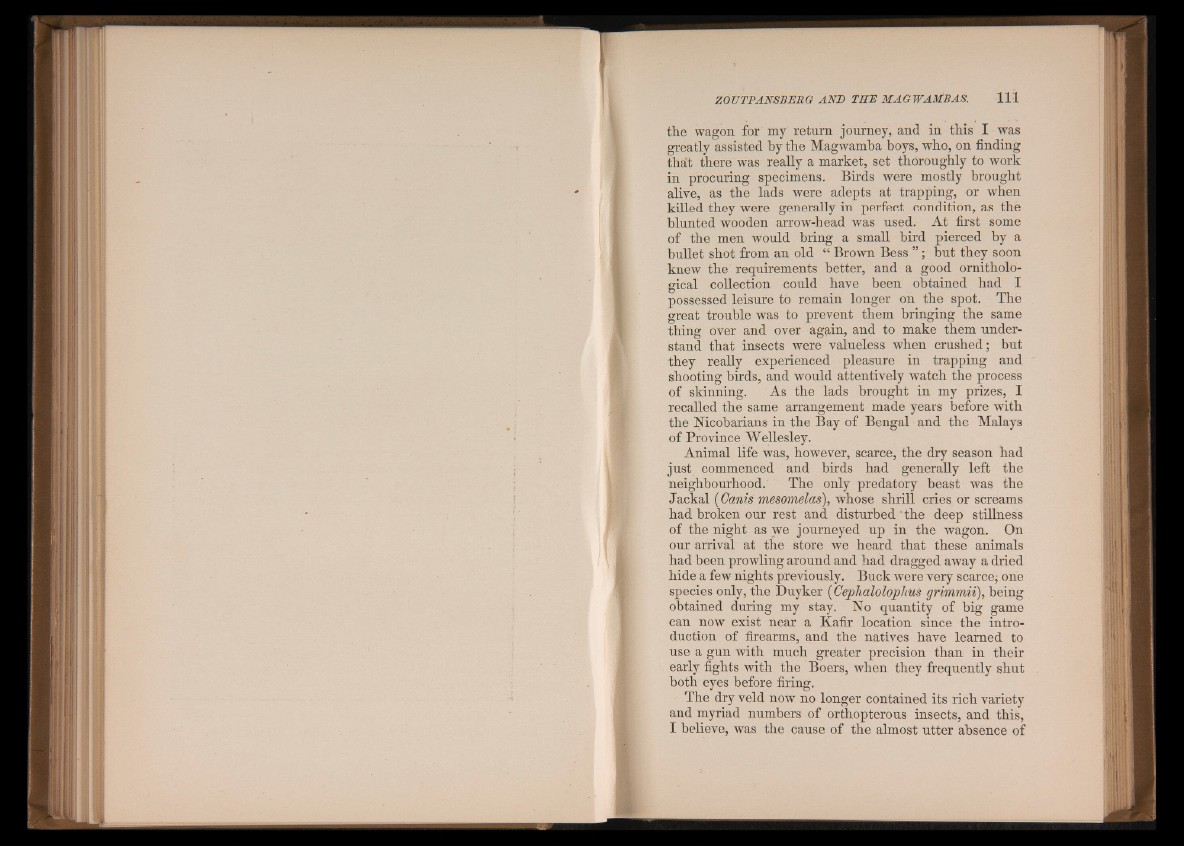
the wagon for my return journey, and in this I was
greatly assisted by the Magwamba boys, who, on finding
tha't there was really a market, set thoroughly to work
in procuring specimens. Birds were mostly brought
alive, as the lads were adepts at trapping, or when
killed they were generally in perfect condition, as the
blunted wooden arrow-head was used. At first some
of the men would bring a small bird pierced by a
bullet shot from an old “ Brown Bess ” ; but they soon
knew the requirements better, and a good ornithological
collection could have been obtained had I
possessed leisure to remain longer on the spot. The
great trouble was to prevent them bringing the same
thing over and over again, and to make them understand
that insects were valueless when crushed; but
they really experienced pleasure in trapping and
shooting birds, and would attentively watch the process
of skinning. As the lads brought in my prizes, I
recalled the same arrangement made years before with
the Nicobarians in the Bay of Bengal and the Malays
of Province Wellesley.
Animal life was, however, scarce, the dry season had
just commenced and birds had generally left the
neighbourhood. The only predatory beast was the
Jackal (Canis mesomelas), whose shrill cries or screams
had broken our rest and disturbed' the deep stillness
of the night as we journeyed up in the wagon. On
our arrival at the store we heard that these animals
had been prowling around and had dragged away a dried
hide a few nights previously. Buck were very scarce; one
species only, the Duyker (Cephalolophus grimmii), being
obtained during my stay. No quantity of big game
can now exist near a Kafir location since the introduction
of firearms, and the natives have learned to
use a gun with much greater precision than in their
early fights with the Boers, when they frequently shut
both eyes before firing.
The dry veld now no longer contained its rich variety
and myriad numbers of orthopterous insects, and this,
I believe, was the cause of the almost utter absence of